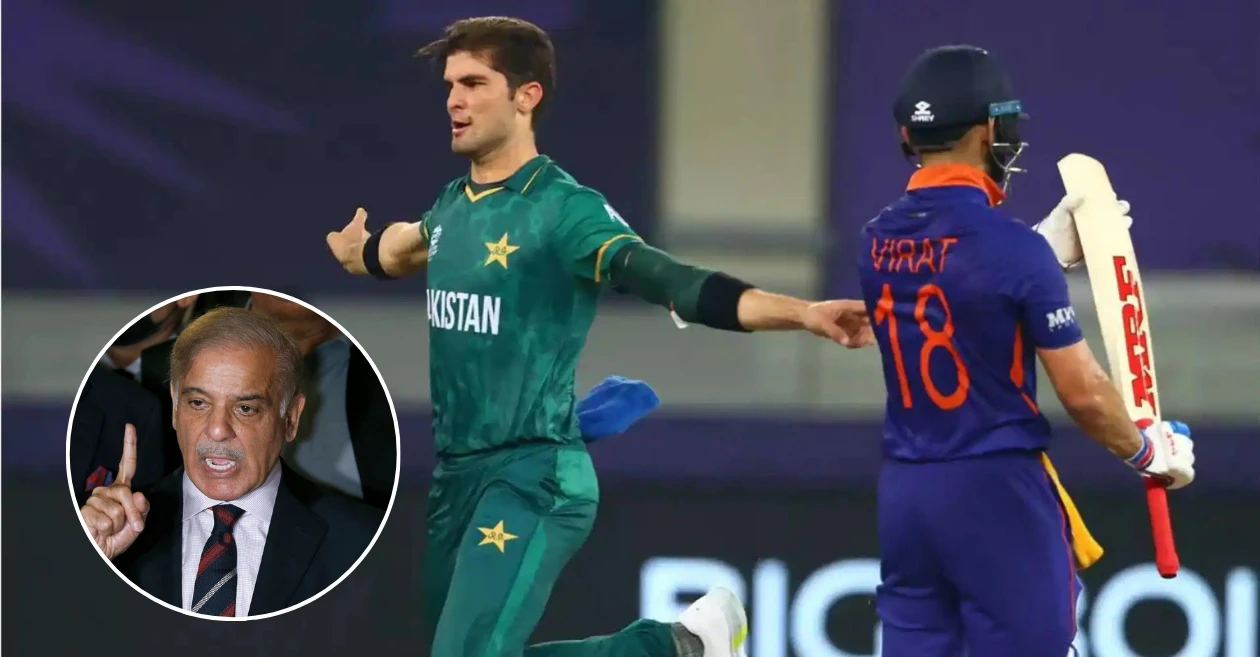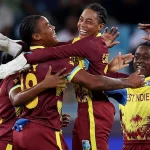In a dramatic turn of events surrounding the ICC Champions Trophy 2025, Pakistan’s Prime Minister Shehbaz Sharif has stepped into the ongoing tussle between the Pakistan Cricket Board (PCB) and the Board of Control for Cricket in India (BCCI). The dispute centers on India’s refusal to play its matches in Pakistan, proposing instead a hybrid model that involves a neutral venue such as Dubai. This impasse has sparked a debate that goes beyond cricket, delving into issues of national pride and regional diplomacy.
Sharif Stands Firm on National Pride
Prime Minister Shehbaz Sharif’s intervention has added a layer of political significance to the dispute. During a meeting with PCB Chairman Mohsin Naqvi, Sharif expressed unequivocal support for the PCB’s stance, emphasizing that the matter is not just about cricket but also about safeguarding Pakistan’s dignity on the global stage.
“The stance adopted by the PCB reflects the feelings of all Pakistanis when it comes to the Champions Trophy after India’s refusal to play in Pakistan,” Sharif reportedly told Naqvi, as per Geo TV. He further encouraged the PCB to negotiate with pride and not compromise Pakistan’s self-respect, reinforcing that the nation’s cricketing identity and sovereignty are non-negotiable.
The Core of the Conflict: India’s Hybrid Model Proposal
The Board of Control for Cricket in India (BCCI) has refused to send its team to Pakistan for the ICC Champions Trophy 2025, citing security concerns. Instead, it has proposed a hybrid model, wherein India’s matches would be held at a neutral venue like Dubai, while other matches, including Pakistan’s, could proceed on home soil.
This proposal has not gone down well with the PCB and cricket fans in Pakistan. Critics argue that the hybrid model undermines the spirit of hosting a global tournament, making it less about competition and more about political divides. For the PCB, the issue goes beyond logistics, touching on national pride and the need for equal treatment as a full member of the ICC.
The PCB’s Response: A Fusion Formula
In response to India’s hybrid model proposal, the PCB has explored a “fusion formula” as a potential countermeasure. This formula stipulates that if India refuses to play in Pakistan for ICC events, Pakistan would similarly decline to play in India for future tournaments, including bilateral series or global competitions.
A source close to the PCB explained the rationale behind this approach:
“Naqvi wanted to keep the PM updated and get his approval if the PCB decides to break the deadlock with any tough decision on the tournament.”
This bold strategy has garnered mixed reactions within the cricketing world. While some see it as a justified stand against double standards, others worry about the potential long-term consequences for international cricket.
Prime Minister’s Directive: Dignity Over Diplomacy
Prime Minister Sharif’s directive to the PCB was clear: approach the negotiations with dignity and avoid compromising Pakistan’s sovereignty. Sharif highlighted that this dispute is not merely about financial implications but is deeply rooted in national pride and the sentiments of Pakistani cricket fans.
He emphasized that Pakistan’s hosting rights for the Champions Trophy were hard-earned, and the nation must defend them with resolve. “This is not just about cricket but about showing the world that Pakistan will not bow to unjust demands,” Sharif reportedly told Naqvi during their meeting.
International Perspectives and ICC’s Role
As discussions continue at the ICC headquarters in Dubai, the governing body faces the challenging task of mediating between two of cricket’s most influential boards. While the hybrid model is gaining traction among some cricketing authorities, it is far from finalized.
The ICC has remained neutral in the dispute, encouraging both boards to find common ground. However, the stalemate highlights the broader challenges of navigating cricket’s complex intersection of sport, diplomacy, and politics.
The Public Reaction: National Sentiment at Play
The Champions Trophy debate has ignited strong emotions among cricket fans in Pakistan. Many view the BCCI’s stance as a refusal to recognize Pakistan’s legitimacy as a safe and capable host. This sentiment is amplified by the successful hosting of the Asia Cup 2023, where Pakistan demonstrated its ability to stage high-profile matches in a secure environment.
Social media platforms have become battlegrounds for heated discussions, with hashtags like #RespectPakCricket and #ChampionsTrophy2025 trending across Pakistan. Fans have rallied behind the PCB’s position, urging the board to take a firm stand against perceived discrimination.
The Broader Implications for Cricket
The ongoing dispute raises important questions about the future of international cricket and its governance. If unresolved, the Champions Trophy controversy could set a precedent for other nations to demand hybrid models or neutral venues, potentially undermining the sanctity of hosting rights.
For Pakistan, this issue is also an opportunity to showcase its progress in restoring cricketing normalcy after years of isolation. The return of international teams like England, Australia, and South Africa to Pakistan in recent years has bolstered the nation’s cricketing credentials. The Champions Trophy 2025 is seen as the culmination of these efforts—a moment to reclaim its position as a prominent host of global events.
Looking Ahead: The Stakes for Both Sides
As the negotiations unfold, both the PCB and BCCI face significant stakes. For Pakistan, the Champions Trophy is more than a tournament—it is a symbol of its cricketing resurgence. A compromised hosting arrangement would be a setback for the nation’s cricketing aspirations and its efforts to establish itself as a key player in the ICC.
For India, the hybrid model reflects its long-standing security concerns about playing in Pakistan. However, the proposal also risks being perceived as a heavy-handed approach that prioritizes political agendas over cricketing fairness.
A Test Beyond the Cricket Field
The ICC Champions Trophy 2025 has become a flashpoint in the relationship between the PCB and BCCI, with ramifications that extend far beyond the game itself. Prime Minister Shehbaz Sharif’s intervention underscores the high stakes involved, as Pakistan seeks to defend its hosting rights and maintain its cricketing dignity.
As the cricketing world watches closely, the hope remains that both boards can find a solution that upholds the principles of fair play, respect, and mutual cooperation. Whether through compromise or confrontation, the outcome of this dispute will shape the narrative of one of cricket’s most anticipated tournaments—and the future of Pakistan-India cricket relations.
Please check for information on the best betting sites in India – https://selectory.org/best-betting-sites/















